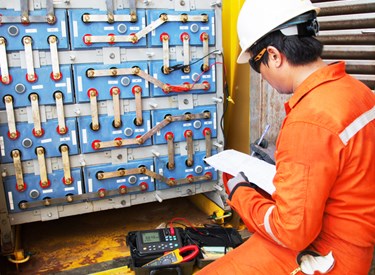1 Days


Enquire about booking an on-site course
Upcoming Courses
Do you need one of our training courses, but only have a few delegates? Is your certificate about to expire and you need to attend a training course at short notice?
Feb. 25 - Feb. 26, 2025
Mar. 18 - Mar. 19, 2025
Apr. 8 - Apr. 9, 2025
Jun. 3 - Jun. 4, 2025
Jul. 1 - Jul. 2, 2025
Sep. 9 - Sep. 10, 2025
Nov. 4 - Nov. 5, 2025
Dec. 2 - Dec. 3, 2025
The Hazardous Atmosphere and Confined Space Testing (HAACSAT) training course assured by City & Guilds, has been developed for use across all types of industry.
The atmosphere testing role is crucial to the safety of all staff. Whether it be for testing a confined space, testing an area to allow hot work to take place, carrying out fire watch or standby roles, or controlling permits. This Hazardous Atmosphere and Confined Space Testing course have been designed to ensure understanding of the possible hazards and how to overcome them, through the correct use of knowledge and equipment.
The aim of the course is to provide delegates with the underpinning knowledge for:
To attend the Hazardous Atmosphere and Confined Space Atmosphere Testing Refresher (HAACSAT-R) course, delegates must hold a valid Hazardous Atmosphere and Confined Space Atmosphere Testing (HAACSAT) certificate.
All personnel who participate in gas testing training should be medically fit and capable of participating fully. The responsibility for the individual completing the course, without any adverse effects to their present state of health, lies with the delegate and/or the company sponsoring the delegate.
Delegates are required to complete an assessment, with a minimum pass mark.
Once the training has taken place and a successful pass mark has been achieved, a suitably qualified assessor must carry out an on-site assessment to verify competence before the delegates are approved to complete the role.
During the training programme, delegates will refresh their understanding of the roles and responsibilities of a Hazardous Atmosphere Tester.
The HAACSAT-R course is set out in the following sections, with associated learning outcomes:
Hot Work and Breaking Containment
© 2022 JMS Consultants
Europarc Innovation Centre
Innovation Way
Grimsby
North East Lincolnshire
DN37 9TT
